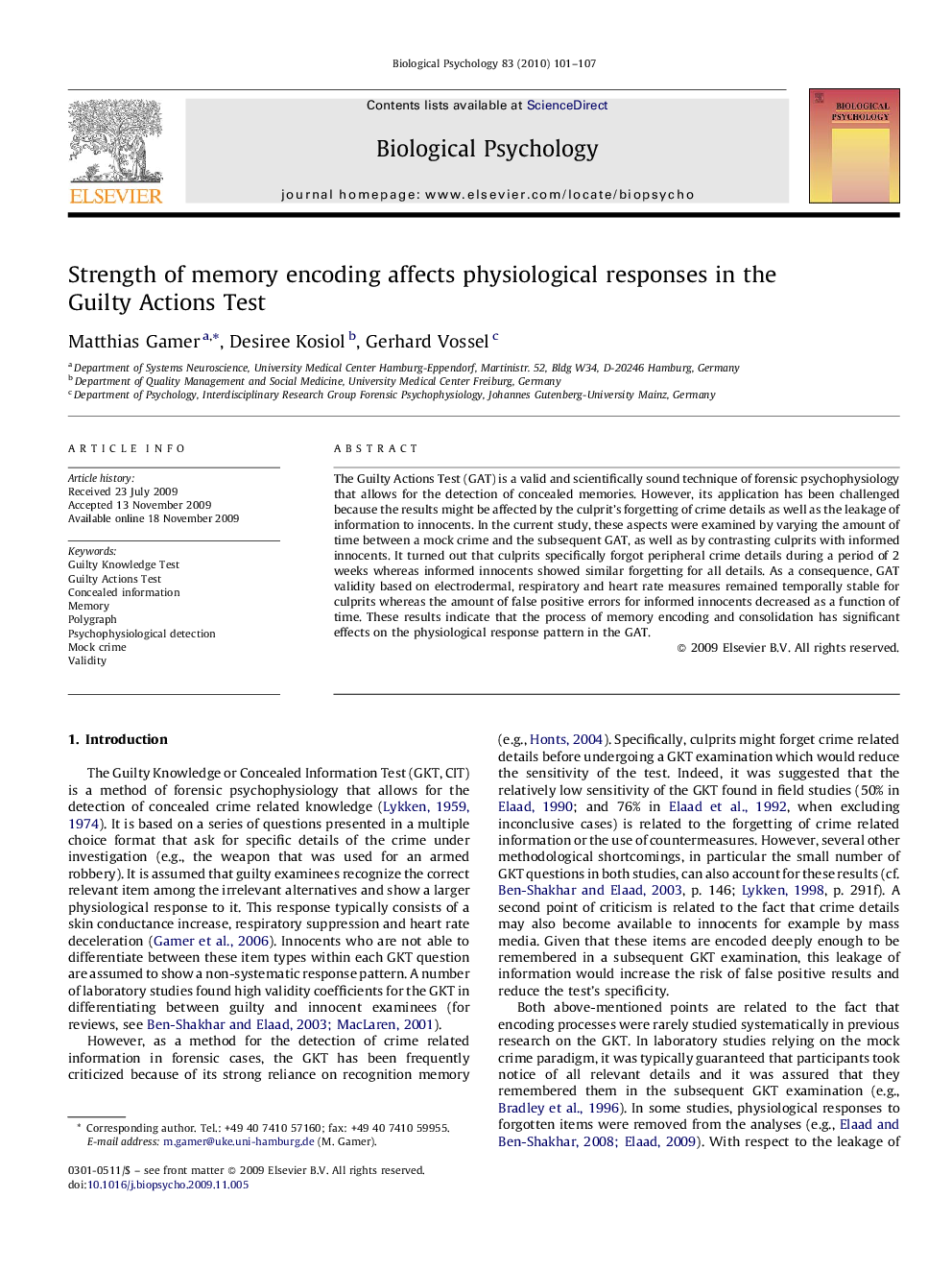| Article ID | Journal | Published Year | Pages | File Type |
|---|---|---|---|---|
| 921456 | Biological Psychology | 2010 | 7 Pages |
The Guilty Actions Test (GAT) is a valid and scientifically sound technique of forensic psychophysiology that allows for the detection of concealed memories. However, its application has been challenged because the results might be affected by the culprit's forgetting of crime details as well as the leakage of information to innocents. In the current study, these aspects were examined by varying the amount of time between a mock crime and the subsequent GAT, as well as by contrasting culprits with informed innocents. It turned out that culprits specifically forgot peripheral crime details during a period of 2 weeks whereas informed innocents showed similar forgetting for all details. As a consequence, GAT validity based on electrodermal, respiratory and heart rate measures remained temporally stable for culprits whereas the amount of false positive errors for informed innocents decreased as a function of time. These results indicate that the process of memory encoding and consolidation has significant effects on the physiological response pattern in the GAT.
